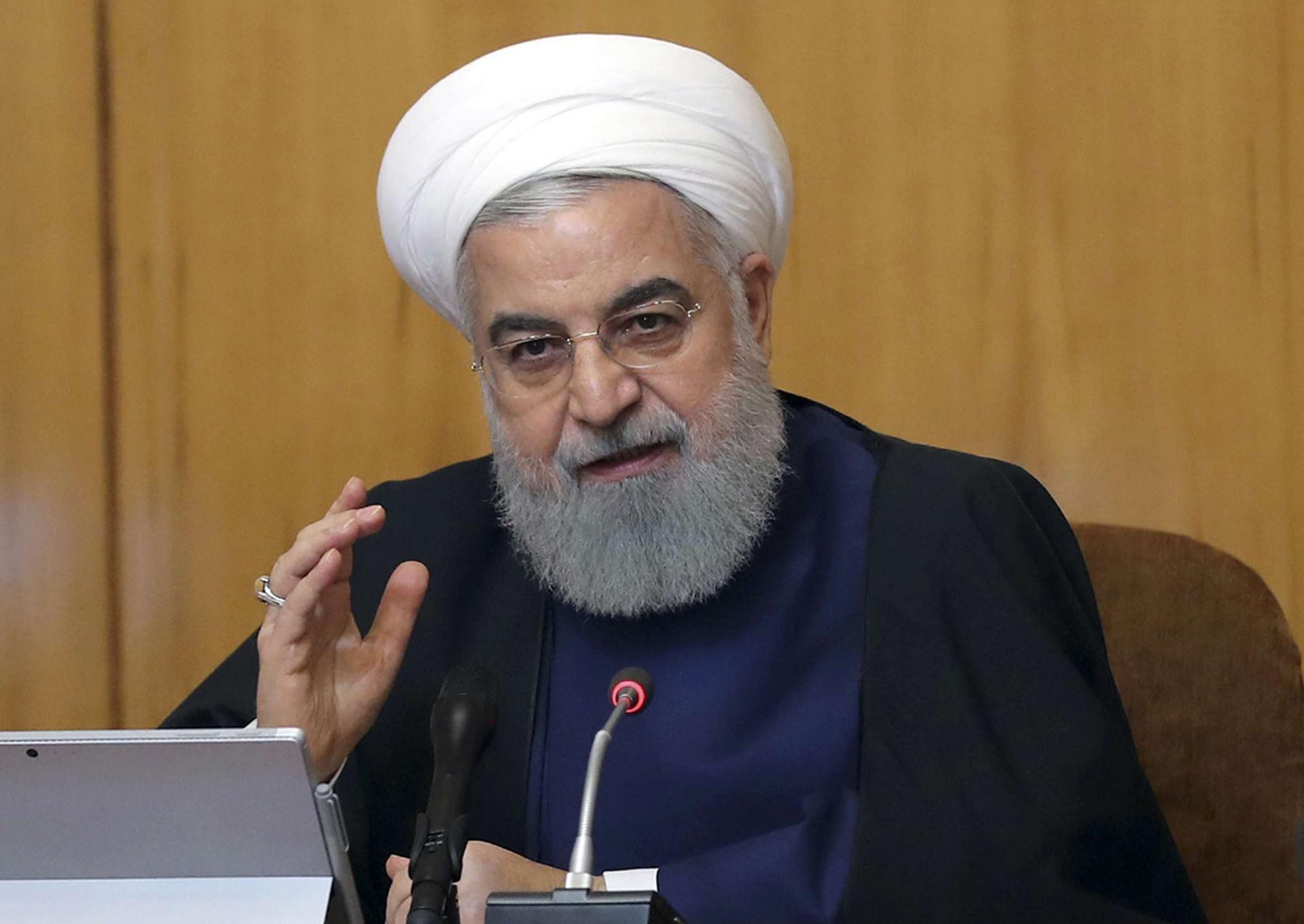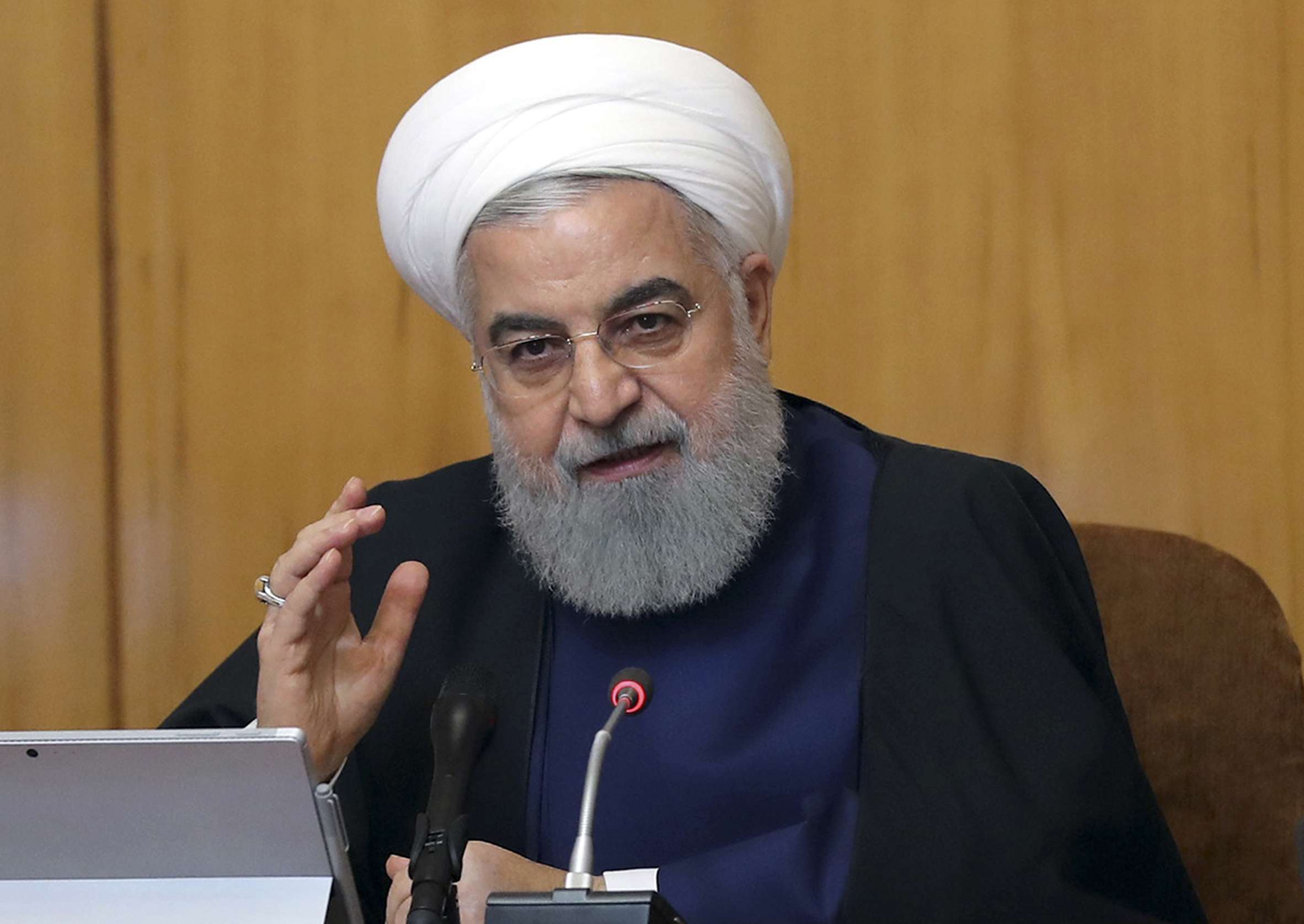The difference between Saudi Arabia and Iran
Why can’t the Iranian regime go straight to the heart of its problems with its Arab neighbours? The fact is that the heart of the problem is the regime’s behaviour in the Middle East, the Gulf and beyond.
The latest twist in the Iranian charade was a statement released by a semi-official Iranian news agency and attributed to a spokesman for the Iranian government. The Iranian spokesman said Saudi Arabia had sent messages to Iranian President Hassan Rohani via leaders of other countries. “If Saudi Arabia is really seeking a change in behaviour, then Iran would welcome it,” said the Iranian spokesman.
The funny thing about this kind of talk is that it is meant for Iranian domestic consumption, that’s all. It departs from a reality of more than 40 years, dating to when a popular revolution in Iran overthrew the shah's regime.
The Islamic Republic was subsequently proclaimed after Ayatollah Khomeini excluded all liberal forces who had dreamed of a new Iran with a modern constitution inspired from the struggles of all civil society forces for a civilised civil state.
Most of those who took to the streets to get rid of the shah's regime were dreaming that their country would someday be a model for the other countries of the region, a modern state in touch with all that is civilised in the world. What ended up happening was the opposite of that dream.
The religious establishment birthed a repressive state that believes only in “exporting the revolution,” a state with a regime that cannot survive without displacing its own internal crises beyond its borders.
To our knowledge, no Arab country, except for Iraq, has attacked Iran. So, it doesn’t make sense to ask Saudi Arabia or any other country in the region to change its behaviour towards Tehran. It is rather the opposite that is true. Iran has deliberately assaulted any country it could reach, either directly or indirectly, for no reason other than to tear the region apart and play the role of the dominant regional power.
Aside from this meaningless talk, for which Iran has no evidence to back it, would it be possible for the Iranian regime to come up with one thing that Saudi Arabia had done to it for the world to ask the Saudi kingdom to “change its behaviour” in the region?
Was it Saudi Arabia that tried to politicise the Muslim pilgrimage and turn it into a demonstration with slogans of the type: “Death to America. Death to Israel. Curses on the Jews”?
Was Saudi Arabia the one that has promoted sectarian militias in Iraq, Syria, Lebanon, Yemen and Bahrain?
Is Saudi Arabia the one that sabotaged Lebanon and turned it into a semi-pariah country suffering from a severe economic crisis it had never before experienced?
Was Saudi Arabia the one that has promoted sectarian cleansing in Iraq?
Has Saudi Arabia participated in the war on the Syrian people and contributed to the displacement of the largest number of Syrians based on sectarian criteria and with the clear aim of protecting a 49-year-old minority regime that believes only in oppressing and depriving Syrian citizens of their freedoms and dignity?
There is no need to enumerate everything Iran has done in the past 40 years. It certainly was not Saudi Arabia that played the role of an active partner in the US-led war on Iraq in 2003. That active partner was Iran.
It was an American armoured vehicle that took to the heart of Baghdad the leaders of the Iraqi sectarian militias from Iran, not Saudi Arabia, on April 9, 2003.
That fateful day was a turning point on every level in the region. It was the day of the rebirth of the project of “exporting the revolution,” thanks to the expediency of US President George W. Bush. The world has still to find out how that administration was foolish enough to invade Iraq without a deliberate post-invasion plan.
Despite recent Iranian attacks on Saudi oil installations, Saudi Arabia still favours political solutions with Iran. This was expressed by Saudi Crown Prince Mohammed bin Salman bin Abdulaziz in his recent US television interview.
This, however, does not mean that it is Saudi Arabia that must change its behaviour as much as it means that it is up to Iran first to know that beating around the bush will get it nowhere. The US sanctions are beginning to strongly affect Iranians but the regime is still able to and persists in circumventing them, albeit narrowly.
It all comes down to this: Does Iran want to be a normal state in the region or not?
No one has attacked it in 40 years, yet Tehran has not spared any Arab state, from the ocean to the Gulf, and sought to interfere in its internal affairs. Can this Islamic Republic change its behaviour? There are no other questions to debate for the moment than that one.
Lebanon remains a perfect example of the difference between Iran and Saudi Arabia. For decades, the kingdom provided Lebanon and the Lebanese with nothing but good deeds. On the other hand, Iran has worked, and continues to work tirelessly, to change the nature of Lebanese society and the role of Lebanon in the region, pushing it away from all that is Arab, after succeeding in changing the nature of the Shia community in the country.
Khairallah Khairallah is a Lebanese writer.
This article was originally published in The Arab Weekly.







